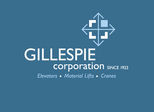- Glenn Siegel
- Mar 17, 2023
If one needed further proof of the miracle and majesty of the act of improvisation, the concert by trumpeter Wadada Leo Smith and pianist Angelica Sanchez at Amherst College on March 10, made the case. The two master musicians spent an hour searching the moment to create powerful, spontaneous music.
The event at Buckley Recital Hall, part of Pioneer Valley Jazz Shares’ 11th season of concerts, was presented in partnership with the Amherst College Department of Music, and was made possible by professors Darryl Harper and Jason Robinson.
The great soprano saxophonist Steve Lacy was once asked about the difference between composition and improvisation. The difference, he said “is that in composition you have all the time you want to think about what to say in 15 seconds, while in improvisation you have only 15 seconds."
For Smith and Sanchez there was no preconceived roadmap and no time to deliberate, only, in the words of Martin Luther King, Jr., “the fierce urgency of now”. Relying on their musical wits and a lifetime of experience, Smith and Sanchez gave 100 rapt listeners a window into their performance practice and their souls.
The two have a bit of shared history. Sanchez was a member of Smith’s Golden Quartet, and they collaborated on Twine Forest, a series of duets released on Clean Feed Records in 2013, but they arrived in Amherst from two very different paths.
Smith was born 81 years ago in Leland, Mississippi and came of age playing in blues, r&b and marching bands. Here is Smith playing in Glendora, Mississippi in 2017. In 1970, he developed a compositional system of graphic notation he calls Ankhrasmation, and he has subsequently composed for string quartet and orchestra. After retiring from CalArts in 2014, he moved back to New Haven, Connecticut, where he has a daughter and grandchildren. In the 1970s, Smith was part of a very vibrant Hartford/Wesleyan/New Haven music scene that included Anthony Davis, Pheeroan AkLaff, Gerry Hemingway, Ed Blackwell, Jay Hoggard and Mark Helias, among others. He is one of the jazz world’s most decorated and celebrated artists.
Sanchez was born in Arizona and moved to New York in 1994. Now 50, she is working more than ever, with trips to Chicago, Knoxville and Europe in the next few months. Her duo recording with fellow pianist Marilyn Crispell, How To Turn the Moon (2020), and her trio with Michael Formanek and Billy Hart, Sparkle Being (2022), both garnered significant critical praise. Her second Nonet recording will be released on Pyroclastic in October. This past fall, she started teaching full time at Bard College, (where Smith taught from 1987-1993), and she is parenting Jack, who is finishing high school in New Jersey.
Friday’s concert featured discreet improvisations that often ended on beautiful notes. How do they know when an unscripted piece is over? There were short periods when one of them would play alone, but there never seemed to be a leader or a follower; they were equals accompanying each other. “How wide is your now?”, the Bay area improviser Tim Perkis used to ask. In other words, how much knowledge and experience can you summon in the moment to make a coherent musical statement? In the case of Smith and Sanchez, the answer is a lot.
From the stage after the performance, Smith thanked us for our attention, drawing a distinction between hearing and listening. Although it was difficult to catch all his words, his gist was that while hearing is a mechanical process, listening requires intent and a level of engagement that musicians feed on to enhance the creative process. Indeed, the audience was one of the quietest I’ve heard, lending focus to an evening without amplification. The microphones on stage were for recording purposes, laying the groundwork, perhaps, for a sequel to their first duo release.
The intensity of the evening was enhanced by the warm acoustics of Buckley Recital Hall, which riveted our attention on the beautiful abstractions of two geniuses with a very wide now.



























